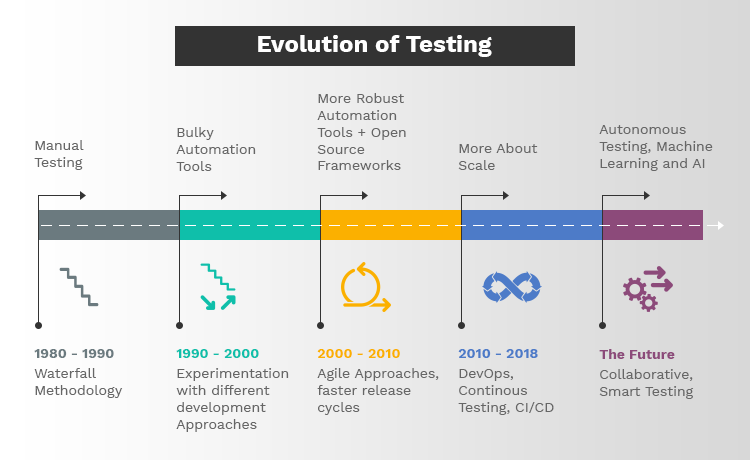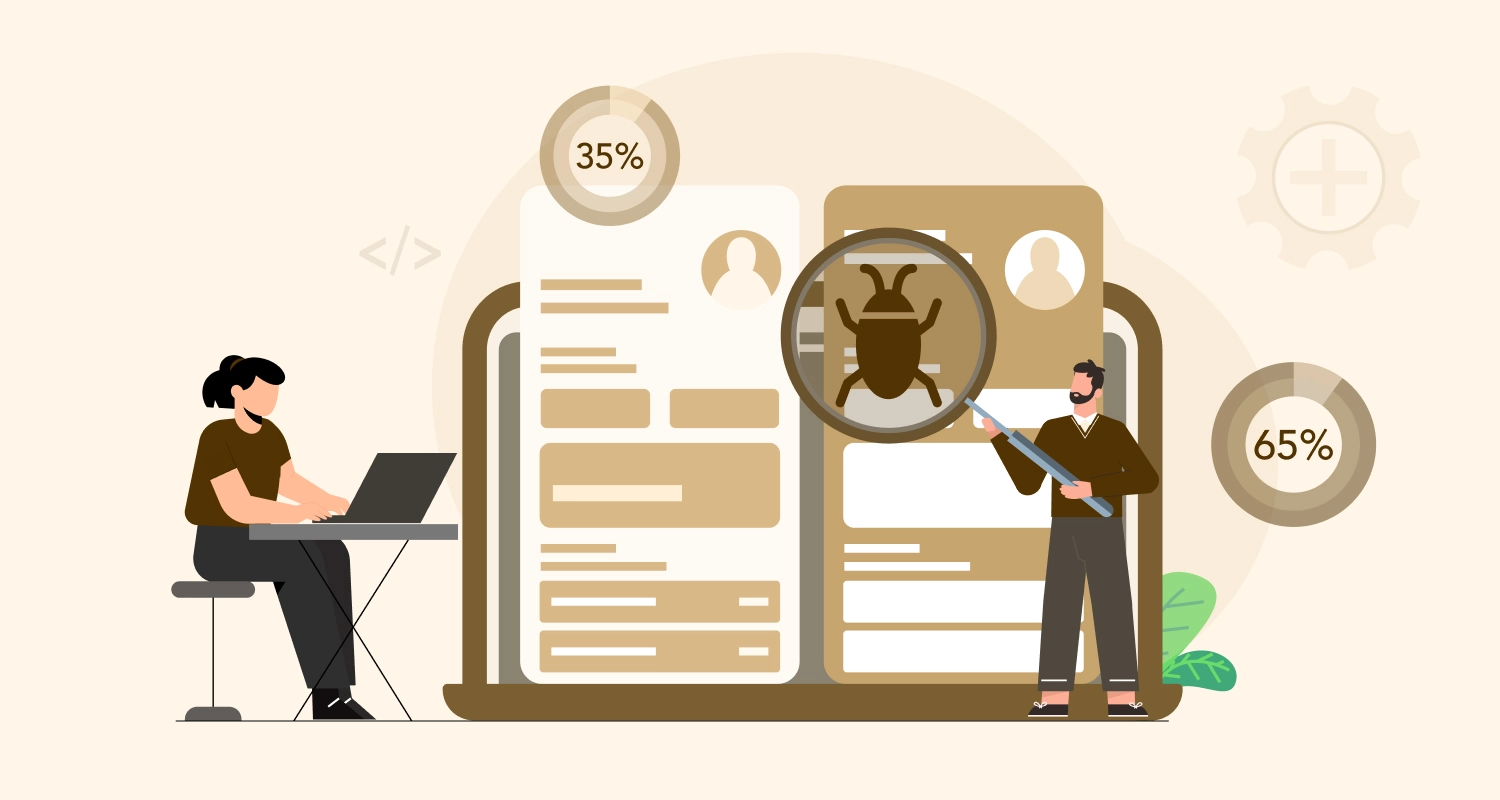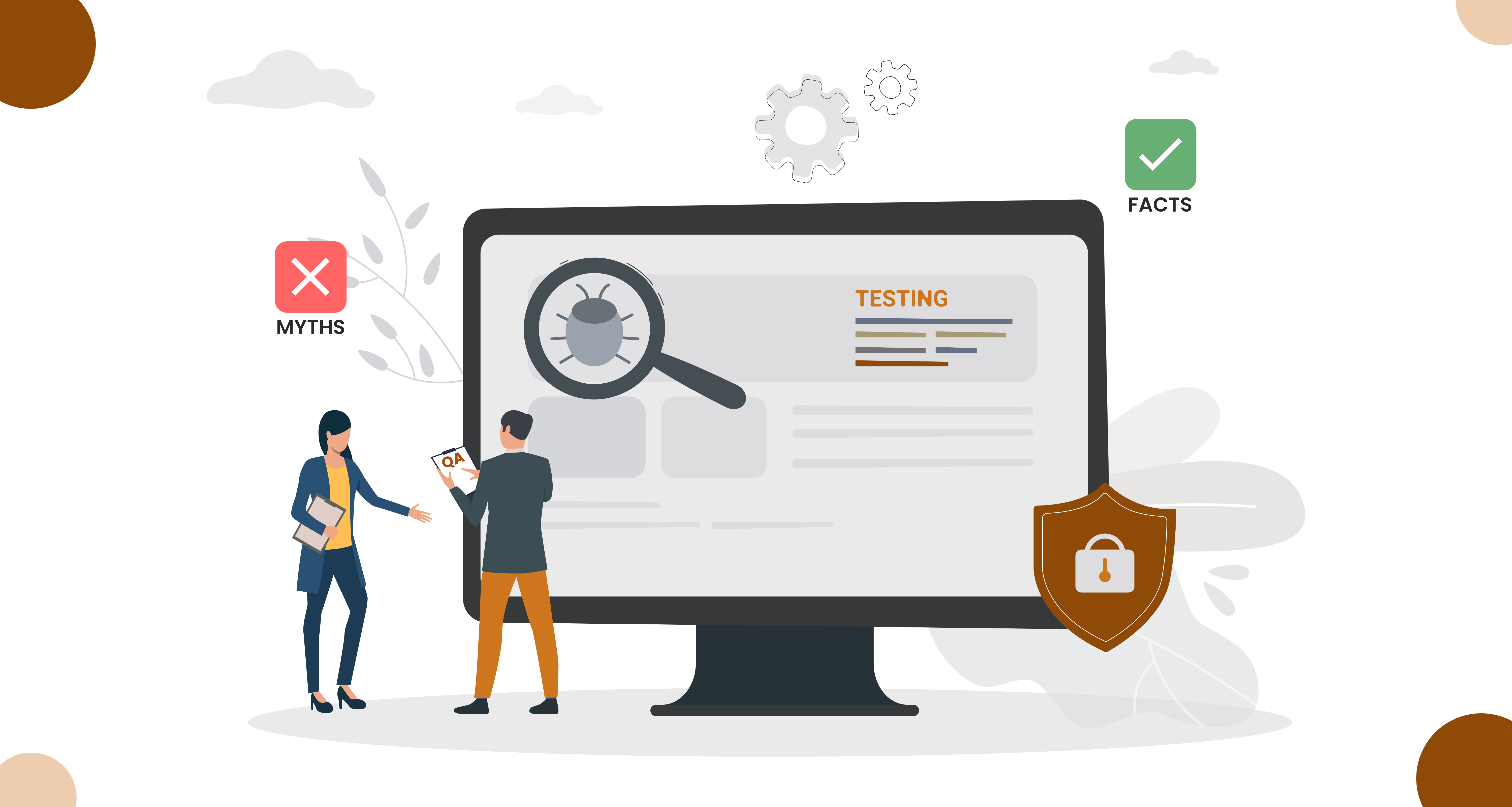Thanks to the emergence of Artificial Intelligence (AI) and Machine Learning (ML) as two definitive technologies impacting the development and testing of mobile apps, intelligent automation became the most prominent aspect of mobile app testing in recent years. In 2023 and the years ahead of us, these two technologies will continue to transform mobile app testing.
Artificial intelligence and machine learning (AI/ML) have already been leveraged in the software test automation earlier and they gave smarter testing output. Development and testing teams are now capable of leveraging AI/ML technologies to boost automation, make faster adaptation, and more effective operation.
In the last year, there has been a renewed effort in utilizing these two technologies for quality assurance (QA) and test automation across the sectors. Development and testing teams are increasingly utilizing these two technologies for prioritizing the test cases, defect detection and classification, pointing test objects, and making interactions during the test, etc.
Test Cases For AI and ML Implementation
There can be no doubt in the fact that AI will continue to play a definitive role in testing processes. No wonder, almost all testing cases and testing methods now utilize AI and ML technologies. Before you hire an iOS or Android app development service provider, you need to have a clear idea of how AI can impact these test cases.
Let us explain some of the principal use cases of AI and ML-based test automation.
- Log Analysis: Identifying unique test cases for manual and automated testing.
- Optimizing Testing Suites: Identify and get rid of recurring and unnecessary test cases.
- Optimum Test Coverage: Ensure optimum test coverage by using the Requirements Traceability Matrix (RTM).
- Predictive Analytics: Identity key app areas and prescribing the key testing parameters for prediction.
- Defect Analysis: Identifying various app areas and corresponding app defects that require repair work.
In 2020 and years beyond, machine learning will also be more mature and more organizations will implement ML algorithms to get a competitive edge. No wonder, mobile app testing will get a fair share of these activities involving machine learning technology.
What AI/ML Testing Means for Businesses?
In spite of the fact that there is an increasing demand for AI/ML applications in software testing, most of us know that AI/ML-based testing is still not mature enough. Though, we know that maturity is coming anytime soon in this regard.
AI poses a lot of new demands for testing and QA. This is why it is important for Agile teams to get versed in AI-based skills. Some of these crucial skills include data science onboarding, statistics and mathematical expertise. Apart from this, business decision making is another important skill to adopt. The successful AI/ML-based testing professionals should be equipped with a good combination of AI skills and business decision-making skills. When it comes to the developers of automation tools, there should be a full focus on practical uses.
3 Ways AI/ML is Transforming App Testing
Let us now explain the 3 most important ways AI is transforming testing.
The Changing Tools and Equipment
As AI and Ml are continuing to become mainstream technologies for app testing, new tools and software are continuing to make AI implementation easier. AI will push for the creation of a whole array of sophisticated testing tools to ensure faster, better and less expensive testing output. AI will completely transform the way we used to do the selection, management, and driving system under test (SUT).
Determinism Will Perish
For many app testers when utilizing AI for testing one of the biggest moments is to understand that AI doesn’t give precedence to determinism for detecting issues. The solutions provided by AI continue to change as a system continues to get exposure to new data. The testing objectives continue to change as the testing mechanism incorporates new data.
There can be many surprising outcomes with AI-based testing. A testing professional needs to run a testing program several times just to make sure that the statistical conclusion is precise and accurate. Thus requires the testing infrastructure to learn continuously through the test result data. The testing results continue to fine-tune the AI-based decision making and thus make the output better.
We Will Be More Insightful as Testers
While human reasoning is all-powerful compared to the machine led intelligence and reasoning, with the help of AI and ML algorithms that help data-driven decision making, even human testers and testing experts of future years will be more insightful and precise than ever before.
Just consider a situation where both the testing systems and the applications subject to testing use AI and ML technologies. This happened with some testing cases where the automation in spite of knowing the intricacies of the system could not step on the middle step between accurate and inaccurate system behaviours under testing. In such scenarios, testing professionals can play an effective role as they know the source, the product owner, a customer or just a stakeholder.
How can the AI-powered system testing AI apps can influence us as testers? Well, testing professionals and test engineers of the future working with AI algorithms and tools will require quite a robust skill set for building and maintaining AI-based test suites capable of testing AI-based apps. Such tasks will need more deeper and robust data science skills, and command over deep learning principles.
Conclusion
Finally, the last question that we need to face is whether app testers and testing professionals will become extinct like dinosaurs. Well, as testing is going through a comprehensive transformation thanks to AI and ML-based algorithms, such an outcome cannot be completely refuted as a possibility. In the years to come, human testers will continue to have less and less impact in the field of software testing. Only a few trained and expert data scientists will be able to take responsibility for testing tasks and output at large. The future of testing definitely belongs to AI and ML








